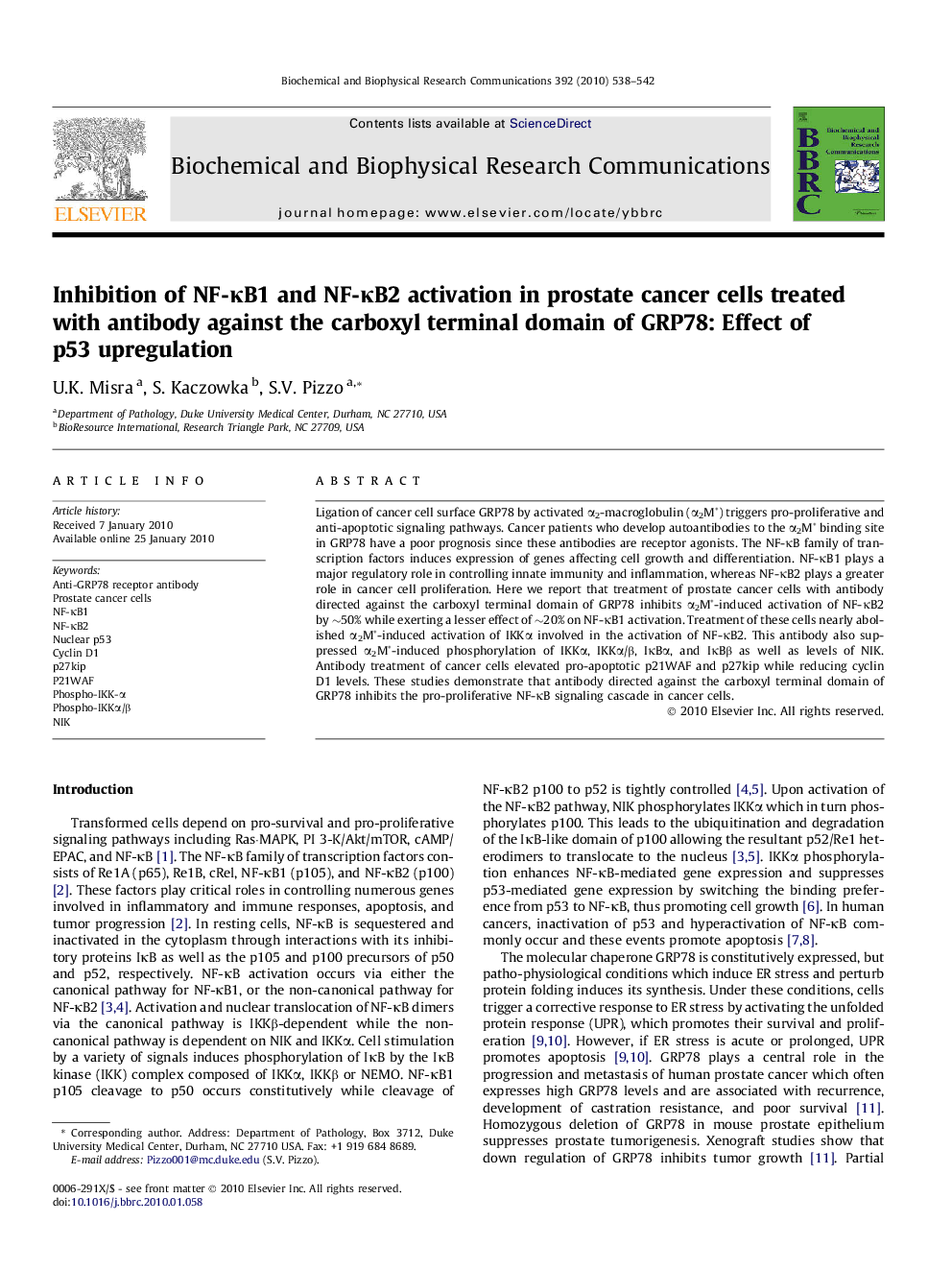| Article ID | Journal | Published Year | Pages | File Type |
|---|---|---|---|---|
| 1932379 | Biochemical and Biophysical Research Communications | 2010 | 5 Pages |
Ligation of cancer cell surface GRP78 by activated α2-macroglobulin (α2M∗) triggers pro-proliferative and anti-apoptotic signaling pathways. Cancer patients who develop autoantibodies to the α2M∗ binding site in GRP78 have a poor prognosis since these antibodies are receptor agonists. The NF-κB family of transcription factors induces expression of genes affecting cell growth and differentiation. NF-κB1 plays a major regulatory role in controlling innate immunity and inflammation, whereas NF-κB2 plays a greater role in cancer cell proliferation. Here we report that treatment of prostate cancer cells with antibody directed against the carboxyl terminal domain of GRP78 inhibits α2M∗-induced activation of NF-κB2 by ∼50% while exerting a lesser effect of ∼20% on NF-κB1 activation. Treatment of these cells nearly abolished α2M∗-induced activation of IKKα involved in the activation of NF-κB2. This antibody also suppressed α2M∗-induced phosphorylation of IKKα, IKKα/β, IκBα, and IκBβ as well as levels of NIK. Antibody treatment of cancer cells elevated pro-apoptotic p21WAF and p27kip while reducing cyclin D1 levels. These studies demonstrate that antibody directed against the carboxyl terminal domain of GRP78 inhibits the pro-proliferative NF-κB signaling cascade in cancer cells.
